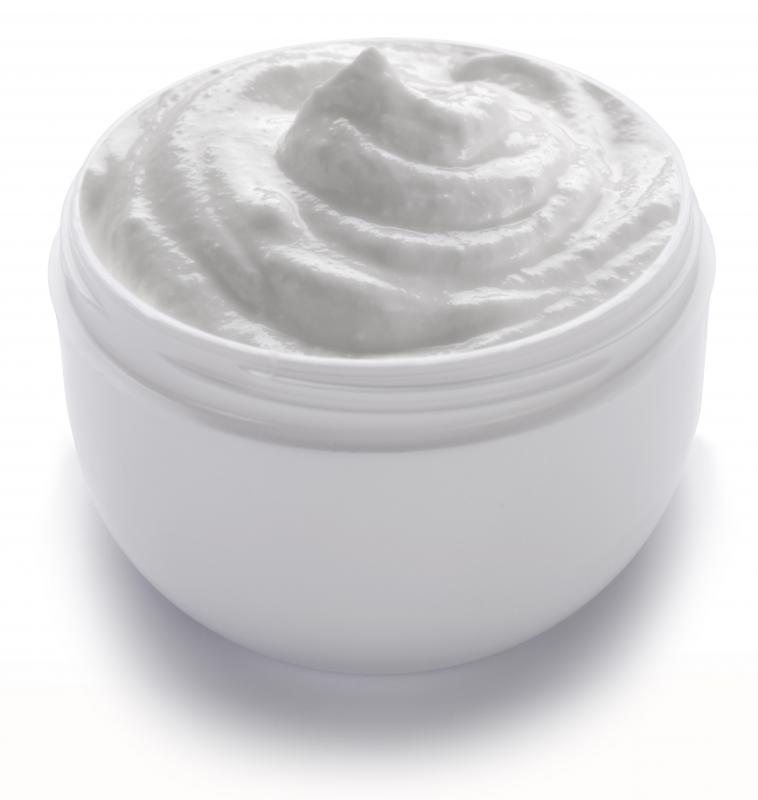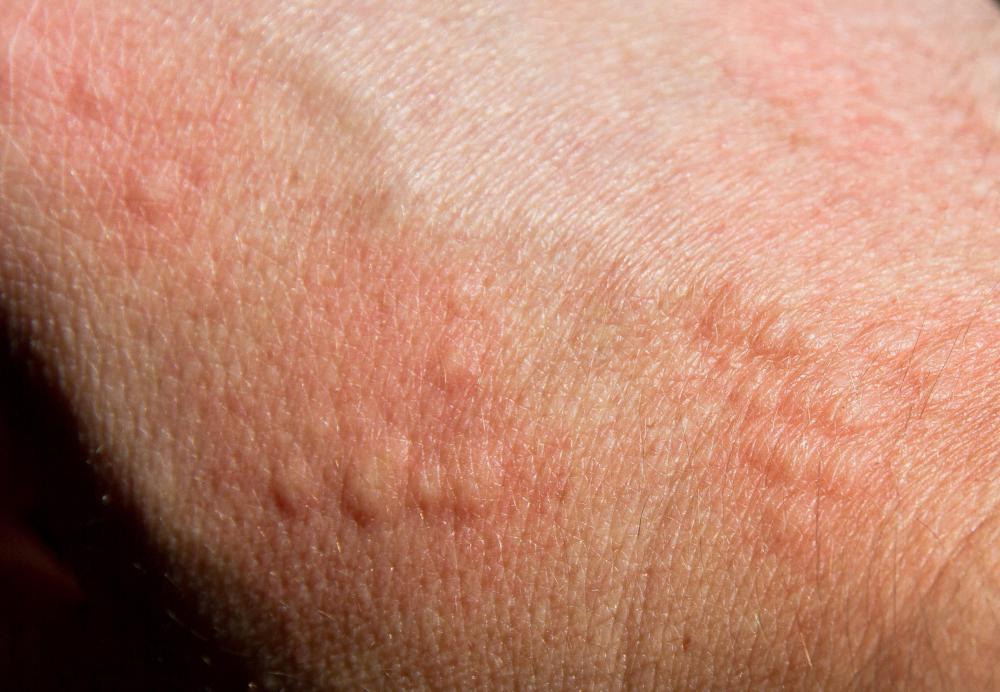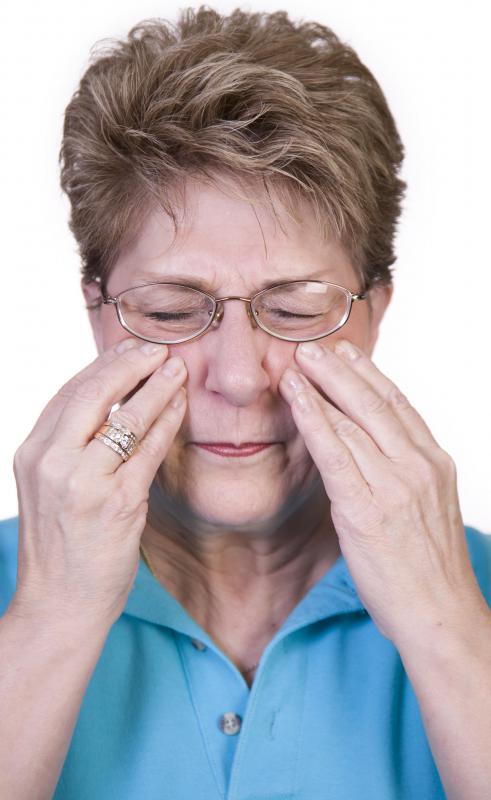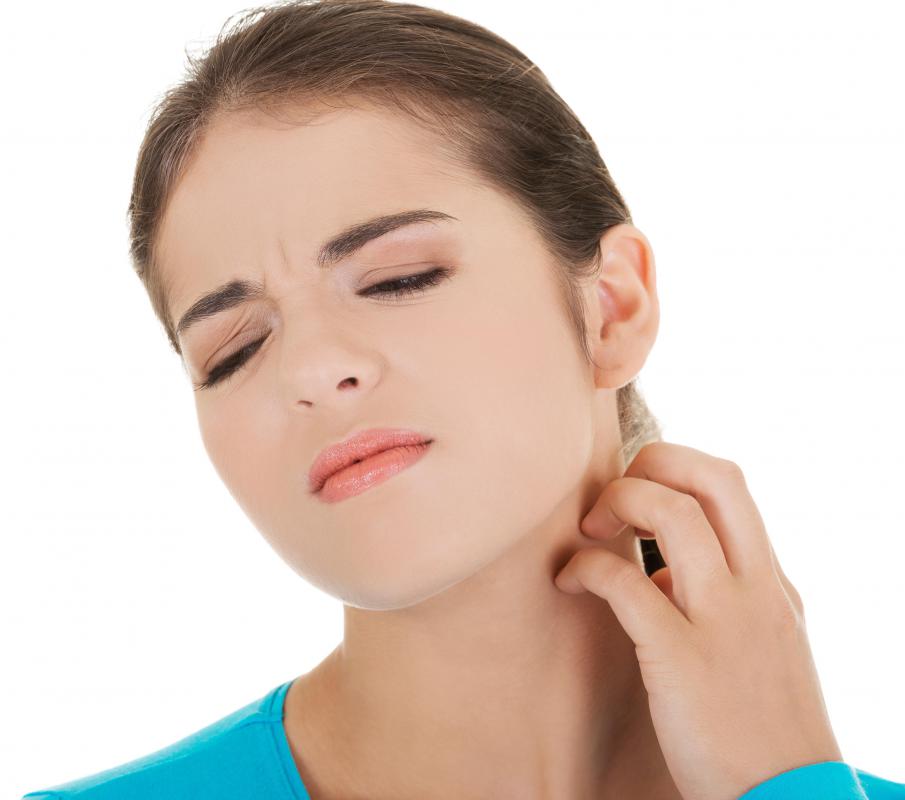At BeautyAnswered, we're committed to delivering accurate, trustworthy information. Our expert-authored content is rigorously fact-checked and sourced from credible authorities. Discover how we uphold the highest standards in providing you with reliable knowledge.
What are the Most Common Hydroquinone Side Effects?
The most common hydroquinone side effects are not many in number, but this topical medicine used to treat skin pigment issues can cause some skin irritation. For most people, skin irritation is transient and goes away as use continues. There are some other features of this cream or gel that are worth noting. Like any drug, there can be serious side effects or reactions or special guidance when using the product that needs to be observed.
As stated, hydroquinone is most often used to address issues of hyperpigmentation on the skin, very often on the face, where skin discoloration may be most prominent. People wanting to lighten dark spots or to treat overall redness from diseases like rosacea may receive their doctors’ recommendation and prescriptions for this medication. A common hydroquinone side effect for virtually all users is increased sun sensitivity. It’s always advised that people use sunscreen and avoid excess sun exposure as this may more easily damage skin. Overall, the most common of hydroquinone side effects is persistent skin sensitivity and people are cautioned to avoid using harsh soaps on areas hydroquinone is use.

Another of the common hydroquinone side effects is skin drying, skin redness, or a feeling that the skins stings or tingles. While most people will only note these feelings or change in appearance for a short period of time, others find skin irritation worsens as a result of using hydroquinone. If this is the case, people should definitely contact their doctors and get advice before continuing to use the drug.

Other hydroquinone side effects that might develop at this point include chronic irritation of the skin, where a person might experience burning, itchiness, or have skin that crusts over. This indicates poor tolerance for the medicine. People should seek medical advice at once to treat the reaction and to get advice on other medications that might be tried instead.

Though not one of the common hydroquinone side effects, some people develop strong allergies to this medication, which could include anaphylactic reaction. If a person uses this medication and notices facial swelling, tongue swelling, hives, or difficulty breathing, they need immediate medical care. Usually such a reaction would not occur the first time the medicine was used, unless people had used it before, but might occur with cumulative usage.

One more issue that is especially important to those of darker skin coloration is that people can develop a condition called ochronosis. Though rare, this hydroquinone side effect can be permanent. It involves the developing of blue or dark patches on the skin, and these may not always fade when medication use discontinues.
Every medication has risks and benefits. There are benefits to hydroquinone and a number of people find it helpful for skin conditions and unproblematic to use. There are also risks, though they do tend to be minimal for this medication. Nevertheless people are always advised to understand risk/benefit profile so they make informed decisions about medical care with their physicians.
AS FEATURED ON:
AS FEATURED ON:



















Discussion Comments
I used Hydroquinone cream from past two but now my face is dry and itchy and my lips are swelled. Give me some suggestions for this because I am suffering lot of problems from this.
@Tunaline: I got the same side effect as your sister did after using a fade out cream(4 percent hydroquinone) in 2001. I developed this awful burning sensation in my face. I never found a solution. Did your sister find any cure for it?
Can anyone else give me useful information about how to overcome this burning sensation? It would be very helpful for me.
hydroquinone cream has done wonders for me.
I have been using it for a few years and couldn't be happier! I had melasma on my cheeks, (light brown patches of coloration) and it has nearly completely faded it! It has also greatly reduced the brown age spots on the backs of my hands!
I just bought the kind they sell at safeway called Nadinola. It has 3 percent hydroquinone so maybe that is a mild formula. I just know that I use it three to four times a week as a moisturizer.
@lightning88 -- I work in a spa that does hydroquinone treatments, so I'll tell you everything I know that you could do.
First, although there is no way to tell if you're going to experience hydroquinone cream side effects just by looking at them, you can do what is called a patch test. All you have to do is put a small amount of the cream on a patch of skin that's similar to the one you would be using it on, say, the inside of your wrist if you're using it on your face, and see what happens.
If you experience the side effects, then you obviously aren't a good candidate for the product anyway, but if you don't, then you can try it on your face, or wherever else you want.
However, after hearing how sensitive your skin is, I don't think that I would recommend hydroquinone as the thing for you. You might want to go to a dermatologist to see what kinds of more gentle treatments they have for your skin. If you do insist on using hydroquinone, then get a very, very low dosage. The side effects of hydroquinone can be pretty bad, and you really don't want that kind of mess on your face.
Best of luck!
Is there a way to tell in advance whether you would be prone to the hydroquinone cream side effects, or whether it is safe for you to take?
I have a quite uneven skin tone from hormonal imbalance during my teen years, and I'd really like to even it out now, but I'm afraid that I'll just cause even more problems.
I have really sensitive skin to begin with, and am very prone to sunburn even in normal sunlight, so I'm really kind of doubting that this would be for me...but I'm also really desperate to even out my skin!
What should I do? Is there some sort or natural or "green" cream to even out my skin tone so that I don't have to rely on a harsh chemical?
Thanks!
My sister was using a hydroquinone cream to lighten her skin, and she had a pretty bad experience with it. She had gotten some hydroquinone gel 4 from Europe, and was trying to use it to lighten large spots on her face that she had had since she was a child.
Now, I don't know if she just got a bad batch, but she had the worst burning sensation on her face, especially since one of the spots was near her eyes.
She got terrible blisters, and her skin peeled something awful. So after trying to tough it out for a few days, she switched over to ibuprofen cream to help with the pain, and gave up on the hydroquinone altogether.
Although her spots were slightly lighter, she said it definitely wasn't the pains she went through, and after seeing it, I wouldn't even touch that stuff!
Post your comments